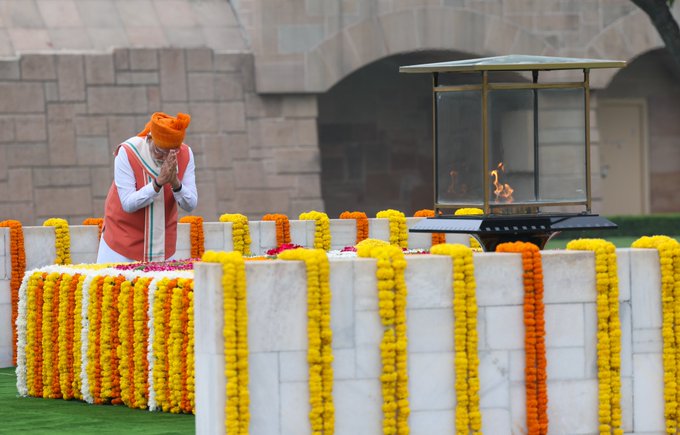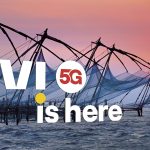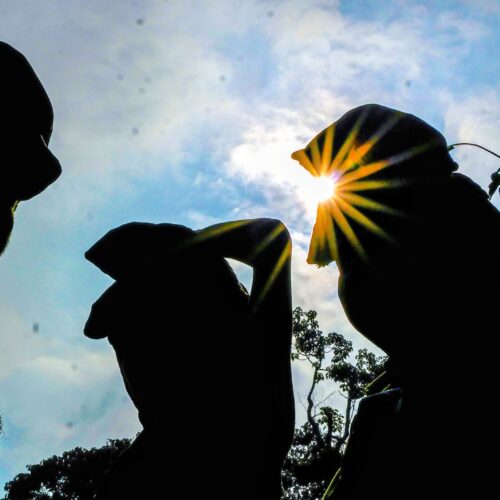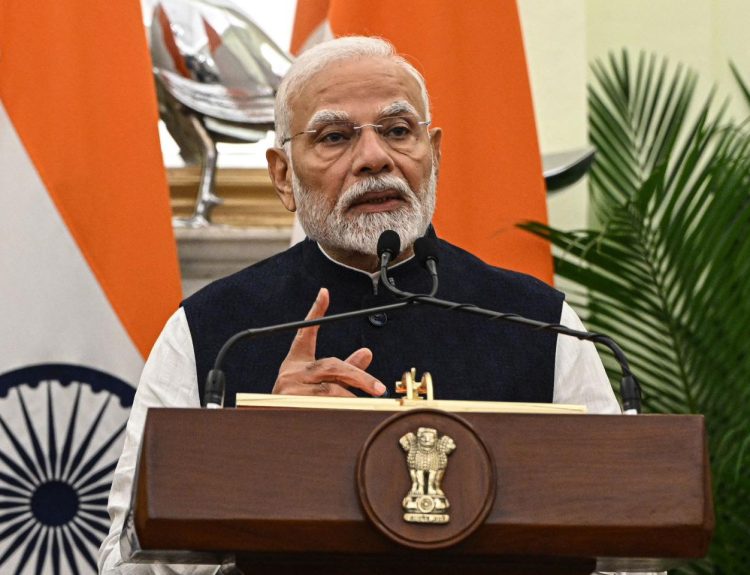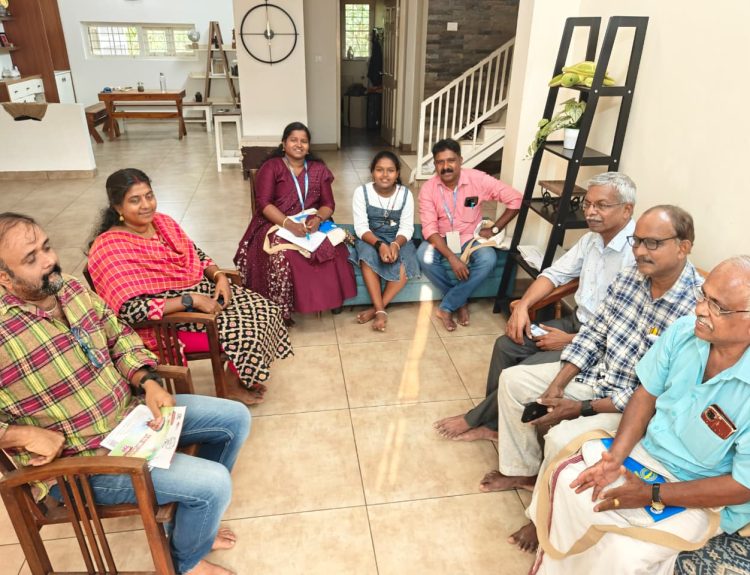Marking his 12th Independence Day address, Prime Minister Shri Narendra Modi turned the Red Fort into a launchpad for the next chapter of India’s rise. On the 79th Independence Day, he made a series of bold announcements that signal a nation ready to leap, not just step, into the future.
From making India’s first semiconductor chip to building jet engines, from tenfold nuclear expansion to a ₹1 lakh crore youth employment push, his message was unambiguous: Bharat will define its own destiny, set its own terms, and aim to become a developed nation by 2047.
Major Announcements :
Semiconductors: From Lost Decades to Mission Mode
Recalling how attempts to set up semiconductor factories 50–60 years ago were “killed at birth” while other nations prospered, PM Modi announced that India is now on mission mode. By the end of this year, the nation will roll out its first Made in India chip.
Nuclear Energy Capacity to Grow Tenfold by 2047
Work is underway on 10 new nuclear reactors as part of India’s mission to increase nuclear power generation capacity by over ten times in the next two decades.
GST Reforms – A Diwali Gift
Next-generation GST reforms will be unveiled on Diwali, reducing taxes on essential goods and providing relief to MSMEs, local vendors, and consumers.
Reform Task Force for Bharat
PM Modi announced the creation of a dedicated Reform Task Force to drive next-generation reforms. Its mandate: accelerate economic growth, cut red tape and modernise governance.
₹1 Lakh Crore PM Viksit Bharat Rozgar Yojana
PM Modi launched a major employment scheme worth ₹1 lakh crore, under which newly employed youth will receive ₹15,000. The scheme aims to benefit 3 crore young Indians, strengthening the bridge from Swatantra Bharat to Samriddha Bharat.
High-Powered Demography Mission
PM Modi highlighted the dangers of demographic imbalance due to infiltration and illegal migration in border areas. He announced the launch of a High-Powered Demography Mission to address this national security challenge, ensuring the unity, integrity, and rights of India’s citizens are safeguarded.
Energy Independence – Samudra Manthan Begins
PM Modi pointed out that a large share of India’s budget still goes toward importing petrol, diesel, and gas. He announced the launch of the National Deepwater Exploration Mission to tap ocean resources, alongside major expansions in solar, hydrogen, hydro and nuclear power.
Made in India Jet Engines – A National Challenge
PM Modi made a dramatic announcement that just like how we made vaccines during COVID, and UPI for digital payments, we should build our own jet engines too and urged our scientists and youth to take it up as a direct challenge.
PM Modi’s 79th I-Day Address: A Vision for a Viksit Bharat 2047
On the 79th Independence Day, PM Modi delivered his longest and most decisive address from the Red Fort, lasting 103 minutes, charting a bold roadmap for a Viksit Bharat by 2047. With a sharp focus on self-reliance, innovation, and citizen empowerment, the Prime Minister highlighted India’s journey from a nation dependent on others to a globally confident, technologically advanced, and economically resilient country.
Key Highlights and Announcements:
No Blackmail, No Compromise: PM Modi hailed Operation Sindoor, conducted after the Pahalgam attack, as a demonstration of India’s strategic autonomy. Using Made-in-India weapons, the operation dismantled terror networks and Pakistan-based infrastructure, signalling a new era where India will no longer accept nuclear blackmail or threats on foreign terms.
On the issue of the Indus Waters Treaty, he made it unequivocally clear: “India has now decided, blood and water will not flow together. The people have realized that the Indus Waters Treaty was unjust. Water from the Indus River system irrigated enemy lands while our farmers suffered.”
This statement reaffirmed that India will no longer compromise on its national interests, and the operation underscored the country’s ability to act swiftly and decisively, relying entirely on indigenous technology and defence platforms.
Atmanirbhar Bharat, Strengthening Technology, Industry: PM Modi said, “Dependence on others raises questions about a nation’s independence. It is unfortunate when dependence becomes a habit, a dangerous one. That’s why we must remain aware and committed to becoming self-reliant. Self-reliance is not just about exports, imports, the rupee, or the dollar. It is about our capabilities, our strength to stand on our own.”
That is why he announced that India will roll out its first Made-in-India semiconductor chip by 2025 and is opening the nuclear sector to private players, creating unprecedented opportunities in energy and technology.
He urged every citizen, especially the youth, to take part in nation-building by innovating and producing jet engines, social media platforms, fertilisers, and other critical technologies indigenously, forging a future where India stands self-reliant, powerful, and globally respected.
PM Modi also highlighted India’s bold steps to secure resources critical for its future. Through the National Critical Minerals Mission, the country is exploring 1,200 sites to ensure access to minerals essential for energy, industry, and defence.
He emphasized that controlling these minerals strengthens India’s strategic autonomy, keeping its industrial and defence sectors truly self-reliant. Complementing this, the National Deepwater Exploration Mission will harness India’s offshore energy resources, boosting energy self-reliance and reducing dependence on foreign fuel imports, marking another step toward a fully independent and powerful India.
PM Modi urged the nation to achieve self-reliance in medicines and innovation, highlighting India’s strength as the “pharmacy of the world”. He asked, “Shouldn’t we be the ones providing the best and most affordable medicines for the welfare of humanity?”
He emphasized India’s growing prowess in domestic pharmaceutical innovation and the urgent need to develop new medicines, vaccines, and life-saving treatments entirely within India. Drawing inspiration from India’s COVID-19 response, where indigenous vaccines and platforms like CoWin saved millions of lives globally, he called on the nation to expand this spirit of innovation.
Researchers and entrepreneurs were urged to secure patents for new drugs and medical technologies, ensuring that India not only meets its own healthcare needs but also becomes a global hub of medical self-reliance and innovation, demonstrating the country’s ability to lead in science, technology, and human welfare.
Mission Sudarshan Chakra, Enhancing Strategic Defence: To strengthen India’s offensive and deterrent capabilities, PM Modi launched Mission Sudarshan Chakra, drawing inspiration from India’s rich cultural and mythological heritage. He said, “India is launching Mission Sudarshan Chakra to create a powerful weapon system to thwart any attempt by enemies to attack us.”
The initiative is designed to enhance rapid, precise, and powerful defence responses, reinforcing India’s strategic autonomy. PM Modi added, “All public places will be covered by an expanded nationwide security shield by 2035,” ensuring comprehensive protection for the nation while showcasing India’s commitment to self-reliant defence.
Next-generation Reforms: PM Modi announced the formation of a Task Force for Next-Generation Economic Reforms, aimed at overhauling laws, rules, and procedures that govern economic activity.
He highlighted that the government has already abolished over 40,000 unnecessary compliances and 1,500 outdated laws, and in the latest parliamentary session, over 280 provisions were removed. Looking ahead, Next-Generation GST reforms by Diwali will reduce taxes on daily essentials, benefiting MSMEs, local vendors, and consumers, while simultaneously stimulating economic growth and creating a more efficient, citizen-friendly economy.
PM Viksit Bharat Rozgar Yojana, Empowering Youth: To strengthen India’s demographic dividend and ensure that the nation’s youth play a central role in its growth, PM Modi launched the PM Viksit Bharat Rozgar Yojana, a ₹1 lakh crore employment scheme under which newly employed youth will receive ₹15,000, targeting 3 crore young Indians.
He emphasized that this initiative will transform India’s demographic potential into real economic and social prosperity, strengthening the bridge from Swatantra Bharat to Samriddha Bharat and empowering the youth to actively contribute to the nation’s progress and development.
Energy and Nuclear Self-Reliance: PM Modi also highlighted India’s bold steps to secure resources critical for its future. Through the National Critical Minerals Mission, the country is exploring 1,200 sites to ensure access to minerals essential for energy, industry, and defence.
He emphasized that controlling these minerals strengthens India’s strategic autonomy, keeping its industrial and defence sectors truly self-reliant. Complementing this, the National Deepwater Exploration Mission will harness India’s offshore energy resources, reducing dependence on foreign fuel imports and boosting energy self-reliance, marking another step toward a fully independent and powerful India.
Highlighting India’s remarkable achievements in clean energy, PM Modi noted that the country had already reached its 50% clean energy target in 2025, five years ahead of schedule.
He also announced plans to increase India’s nuclear power generation capacity tenfold by 2047, with 10 new nuclear reactors underway, ensuring energy security and sustainable growth. He added that if India were not dependent on energy imports, the money saved could be used for the welfare of farmers, further strengthening the backbone of the nation’s prosperity.
Space Sector Independence, Pioneering Innovation: PM Modi highlighted India’s growing prowess in space science. Preparations for India’s own space station are underway, building on the success of the Gaganyaan mission. Over 300 startups are now innovating in satellite technology, space exploration, and cutting-edge research, demonstrating that India is not only participating in the global space arena but leading with indigenous solutions.
Farmers, Backbone of India’s Prosperity: PM Modi declared, “India will not compromise on their interests.” He emphasized that he has stood as a wall for the farmers and livestock keepers against any detrimental policy, protecting their rights and livelihoods.
He said that Agriculture remains a cornerstone of India’s development, with India ranked No. 1 in milk, pulses, and jute, and No. 2 in rice, wheat, cotton, fruits, and vegetables. Agricultural exports have crossed ₹4 lakh crore, reflecting the nation’s global competitiveness.
To further empower farmers, he launched the PM Dhanya Dhanya Krishi Yojana for 100 backward farming districts, complementing ongoing support through PM-Kisan, irrigation schemes, and livestock protection programs, ensuring that India’s backbone of prosperity remains strong and resilient.
High-Powered Demography Mission, Safeguarding National Integrity: PM Modi also addressed the importance of safeguarding India’s demographic integrity. He warned of challenges posed by illegal infiltration, stressing the need to protect border areas and citizens’ livelihoods. To address these concerns, he announced the High-Powered Demography Mission, aimed at ensuring India’s unity, integrity, and security, tackling both strategic and social challenges.
Looking ahead, PM Modi outlined his vision for a Viksit Bharat 2047, emphasizing that India’s progress is built on self-reliance, innovation, and citizen empowerment.
He reminded citizens that India’s strength lies in its people, innovation, and commitment to self-reliance, urging every Indian to contribute to nation-building, whether by buying India-made products or participating in scientific, technological, and entrepreneurial ventures to ensure a prosperous, powerful, and Viksit Bharat by the nation’s centenary of independence.
PM Modi’s Independence Day Tribute to Farmers: The Backbone of Bharat
On the 79th Independence Day, Prime Minister Narendra Modi paid an emotional tribute to India’s farmers, calling them the backbone of the nation’s journey from dependency to self-reliance. He recalled how colonial rule had left the country impoverished, but it was the tireless efforts of farmers that filled Bharat’s granaries and secured the nation’s food sovereignty. His address combined heartfelt gratitude with a clear roadmap for the future of Indian agriculture.
Farmers – The Backbone of Bharat’s Prosperity
PM Modi said India’s growing economy is directly benefiting farmers, livestock rearers, and fishermen. Today, India is ranked:
No. 1 globally in milk, pulses, and jute production.
No. 2 in rice, wheat, cotton, fruits, and vegetables.
Agriculture exports have now crossed ₹4 lakh crore. To further bridge regional gaps, the Prime Minister announced the PM Dhanya Dhanya Krishi Yojana, targeting the 100 most backwards farming districts.
Reaffirming his commitment, he declared: “For farmers, fishermen, and livestock rearers, Modi will always stand as a wall of protection.”
Indus Water Treaty – India’s Interests First
Calling the Indus Water Treaty unjust, PM Modi said that the agreement, in its current form, has harmed India’s farmers. He announced that Bharat will no longer accept such a one-sided arrangement and will reclaim its rightful share of water for its own fields and people.
Agricultural Self-Reliance – Fertilisers and Inputs
PM Modi underlined that food security cannot be left vulnerable to imports. He stressed the urgent need for domestic production of fertilisers and key inputs, ensuring that Indian farmers are empowered and that Bharat’s agriculture thrives independently. This, he said, is critical not only for farmers’ welfare but also for strengthening the nation’s economic sovereignty.
More Confident Farmers Due to Our Schemes:
PM Modi praised the farmers’ strength, noting that whether small farmers, cattle rearers, or fishermen, all are benefiting from numerous development schemes.
Initiatives such as PM Kisan Samman Nidhi, rainwater harvesting, irrigation projects, quality seed distribution, and timely fertilizer supply have together boosted farmers’ confidence across the country.
Atmanirbhar Bharat: The Foundation of a Strong and Developed India
On the 79th Independence Day, PM Modi underscored Atmanirbhar Bharat as one of the key foundational planks for Viksit Bharat, citing India’s advances in defence, technology, energy, space, and manufacturing. Highlighting Operation Sindoor, he said strategic autonomy and indigenous capabilities are key to decisively tackling threats, making self-reliance the bedrock of national strength, dignity, and the journey to a developed India by 2047.
Atmanirbhar Bharat: PM Modi’s Key Highlights
Defence Self-Reliance and Operation Sindoor: PM Modi hailed Operation Sindoor as a demonstration of India’s defence self-reliance. He emphasized that indigenous capabilities, including Made-in-India weapons, enable India to act decisively and independently, proving that national security cannot rely on foreign dependence.
Self-Reliance in Jet Engine: He urged Indian innovators and youth to develop jet engines within India, ensuring that future defence technology is entirely home-grown and self-reliant.
Semiconductors and High-Tech Leadership: India will launch Made in India semiconductor chips by the end of 2025, reflecting the nation’s growing strength in critical technology sectors. He emphasized innovation in AI, cyber security, deep-tech, and operating systems for global competitiveness.
Space Sector Independence:
Celebrating the remarkable achievements of Group Captain Shubhanshu Shukla, PM Modi announced ambitious plans for India’s very own space station, signalling a new era of indigenous space capabilities.
He highlighted that over 300 startups are actively innovating in satellites, exploration, and cutting-edge space technologies, ensuring that India is not just participating but leading globally in space science and exploration
Clean and Renewable Energy
PM Modi stressed the importance of energy independence, adding that for the bright future of youth and for welfare of farmers energy independence will be ensured.
He declared that while the world debates global warming, India had resolved to achieve 50% clean energy by 2030 but, thanks to the commitment of our people, the goal was met by 2025.
Solar, nuclear, hydro, and hydrogen energy have been advanced, marking a decisive step towards energy independence.
PM Modi highlighted India’s focus on expanding nuclear energy through private sector participation. He noted that 10 new nuclear reactors are currently operational and emphasized that by India’s 100th year of independence, the nation aims to increase its nuclear energy capacity tenfold, strengthening energy self-reliance and supporting sustainable growth.
National Critical Minerals Mission: To secure resources essential for energy, industry, and defence, India has launched the National Critical Minerals Mission, exploring 1,200 sites. PM Modi highlighted that controlling these minerals strengthens strategic autonomy, ensuring India’s industrial and defence sectors remain self-reliant.
National Deepwater Exploration Mission: India will harness its deepwater energy resources, strengthening energy self-reliance and reducing dependence on foreign fuel imports.
Agricultural Self-Reliance and Fertilisers: PM Modi stressed the urgent need to produce fertilisers domestically to empower farmers and protect national food security. Reducing import dependence ensures the nation’s agricultural sector thrives independently, safeguarding farmers’ welfare and strengthening India’s economic sovereignty.
Digital Sovereignty and Indigenous Platforms: PM Modi called on the youth to develop India’s own social media platforms and digital infrastructure, ensuring communication, data, and technological ecosystems remain secure and independent, reinforcing India’s digital autonomy.
Self-Reliance in Medicines and Innovation: PM Modi highlighted India’s strength as the “pharmacy of the world” and stressed the urgent need to invest more in research and development. He asked, “Shouldn’t we be the ones providing the best and most affordable medicines for the welfare of humanity?”
He highlighted India’s growing strength in domestic pharmaceutical innovation, emphasizing the need to develop new medicines, vaccines, and life-saving treatments entirely within India.
Drawing inspiration from India’s COVID-19 response, where indigenous vaccines and platforms like CoWin saved millions of lives globally, he urged the nation to expand this spirit of innovation.
He called on researchers and entrepreneurs to secure patents for new drugs and medical technologies, ensuring that India not only meets its own healthcare needs but also contributes to global well-being, establishing itself as a hub of medical self-reliance and innovation.
Championing Swadeshi: PM Modi urged citizens and shopkeepers to champion India-made goods under the “Vocal for Local” initiative, stressing that Swadeshi should stem from pride and strength, not compulsion. He called for visible promotion, such as “Swadeshi” boards outside shops, to boost self-reliance, support entrepreneurship, and strengthen India’s economic and industrial base.
Mission Sudarshan Chakra: Honouring Tradition and Strengthening Defence, PM Modi announced the launch of “Mission Sudarshan Chakra”, aimed at neutralising enemy defence infiltrations and enhancing India’s offensive capabilities.
He linked the mission to the legendary Shri Krishna’s Sudarshan Chakra, highlighting how India draws inspiration from its rich cultural and mythological heritage to guide modern defence innovations. This mission underscores India’s commitment to strategic autonomy, ensuring rapid, precise, and powerful responses to any threat.
PM Modi’s Independence Day Tribute to Farmers: The Backbone of Bharat
PM Modi’s Independence Day Tribute to Farmers: The Backbone of Bharat
Posted On: 15 AUG 2025 12:02PM by PIB Delhi
On the 79th Independence Day, Prime Minister Narendra Modi paid an emotional tribute to India’s farmers, calling them the backbone of the nation’s journey from dependency to self-reliance. He recalled how colonial rule had left the country impoverished, but it was the tireless efforts of farmers that filled Bharat’s granaries and secured the nation’s food sovereignty. His address combined heartfelt gratitude with a clear roadmap for the future of Indian agriculture.
Farmers – The Backbone of Bharat’s Prosperity
PM Modi said India’s growing economy is directly benefiting farmers, livestock rearers, and fishermen. Today, India is ranked:
No. 1 globally in milk, pulses, and jute production.
No. 2 in rice, wheat, cotton, fruits, and vegetables.
Agriculture exports have now crossed ₹4 lakh crore. To further bridge regional gaps, the Prime Minister announced the PM Dhanya Dhanya Krishi Yojana, targeting the 100 most backwards farming districts.
Reaffirming his commitment, he declared: “For farmers, fishermen, and livestock rearers, Modi will always stand as a wall of protection.”
Indus Water Treaty – India’s Interests First
Calling the Indus Water Treaty unjust, PM Modi said that the agreement, in its current form, has harmed India’s farmers. He announced that Bharat will no longer accept such a one-sided arrangement and will reclaim its rightful share of water for its own fields and people.
Agricultural Self-Reliance – Fertilisers and Inputs
PM Modi underlined that food security cannot be left vulnerable to imports. He stressed the urgent need for domestic production of fertilisers and key inputs, ensuring that Indian farmers are empowered and that Bharat’s agriculture thrives independently. This, he said, is critical not only for farmers’ welfare but also for strengthening the nation’s economic sovereignty.
More Confident Farmers Due to Our Schemes:
PM Modi praised the farmers’ strength, noting that whether small farmers, cattle rearers, or fishermen, all are benefiting from numerous development schemes.
Initiatives such as PM Kisan Samman Nidhi, rainwater harvesting, irrigation projects, quality seed distribution, and timely fertilizer supply have together boosted farmers’ confidence across the country.
A Wall for Farmers’ Protection
PM Modi concluded this part of his address with a pledge that echoed across the nation:
“Bharat ke kisaano, pashu-paalako aur macchuaro se judi kisi bhi ahitkaari neeti ke aage Modi Deewar ban kar khada hai. Bharat apne kisaano ke hithon ke sath koi samjhota nahi karega.”



